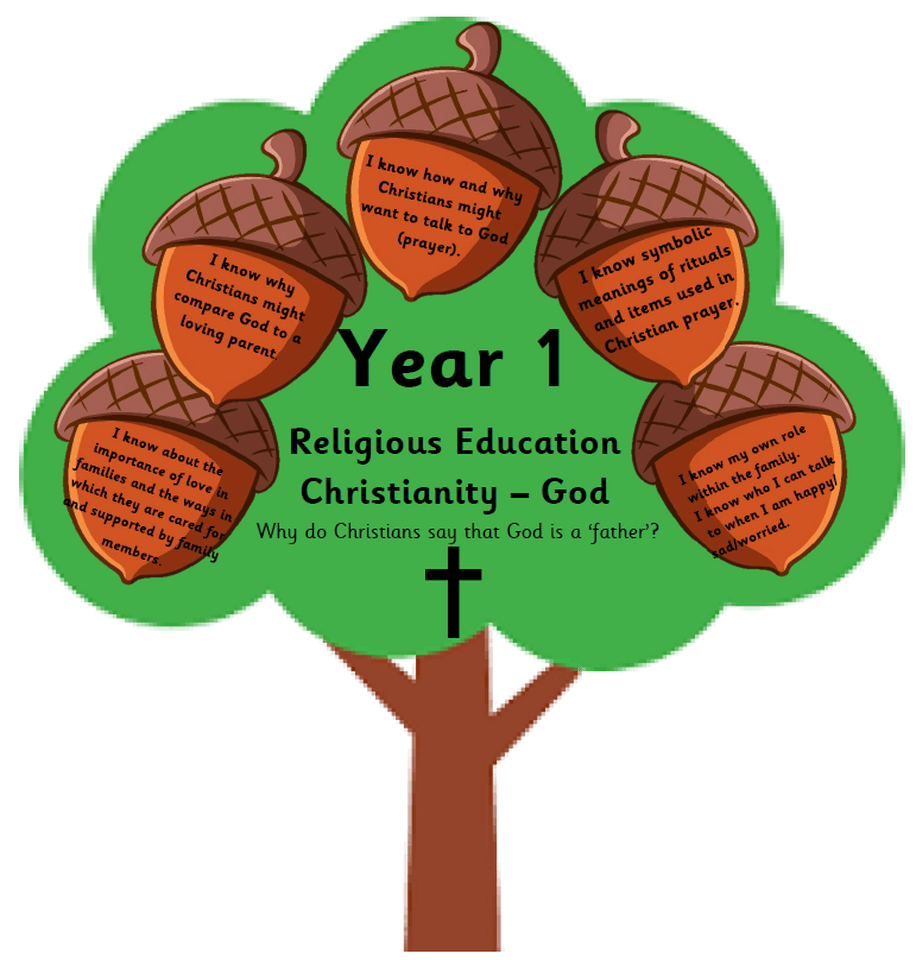RE Subject Overview
At Woodnook, our RE curriculum aims to support our pupils personal search for meaning as they explore what it means to be human. It follows the Lancashire ‘Field of Enquiry' medium term planning model, but also specifies knowledge and skills, which build towards clear goals at the end of each key stage. This ensures that the curriculum is progressive, clearly sequenced and suitably ambitious. It is rooted in disciplinary knowledge based in theology, social sciences and philosophy.
Throughout their time at Woodnook Primary School our pupils will revisit key concepts in different contexts. For Christianity the three key ideas are God (creator and sustainer), Jesus (God incarnate) and the Church (a community of believers). When teaching about Islam the three key ideas are Tawhid (belief in the oneness of Allah), Iman (faith) and ibadah (acts of worship). When teaching about Hindu Dharma the three key ideas are Brahman, dharma and samsara. Not all concepts are will be taught explicitly about in each year. (See the concept Maps in Section 8 Of the Lancashire Agreed Syllabus 2021).
By learning about and from religion we aim to enable our pupils to become more open-minded, respectful and achieve greater self-awareness. The knowledge, skills and attitudes developed through RE can thus make a significant contribution to pupils’ spiritual, moral, social and cultural (SMSC) development to promoting British Values and developing community cohesion and is essential if pupils are to be well prepared for life in our increasingly diverse society. Pupils need to acquire the necessary knowledge and skills to make sense of the complex world in which they live so that they can 'respect religious and cultural differences and contribute to a cohesive and compassionate society' (RE Review 2013). We believe that through the teaching of RE we can contribute to pupils’ personal development and well-being and develop community cohesion by promoting mutual respect and tolerance in a diverse society.
Religious Education provokes challenging questions about the ultimate meaning and purpose of life, beliefs about God, the self and the nature of reality, issues of right and wrong, and what it means to be human. Pupils learn to weigh up the value of wisdom from different sources, to develop and express insights in response, and to agree or disagree respectfully.
Planning is undertaken on a half-termly basis using the Key Questions for each year group. Our planning for RE uses the Lancashire ‘Field of Enquiry’ of Shared Human Experiences (We), Beliefs and Values (What do they believe?), learning about Living Religious Traditions (How does that belief impact on their life?) and a Search for Personal Meaning (Me). The grids that we use enable teachers to be clear about the knowledge, concepts, understanding and skills that should be taught across the school.
In the Early Years we also follow the Early Years Statutory Framework (2021) where Religious Education is found in the specific area ‘Understanding the World’ within the ELG ‘People, Culture and Communities’. The knowledge, skills and understanding that should be acquired by the end of the reception year is to ‘Know some similarities and differences between different religious and cultural communities in this country, drawing on their experiences and what has been read in class.’ (Early Years Statutory Framework 2021). In the Early Years, Religious Education can also make an active contribution and support development within other areas of learning and development, in particular: Communication and Language, Literacy, Personal, Social and Emotional Development, Expressive Arts and Design, Understanding the World.
Click on the overviews below to discover more about our RE Curriculum.




























